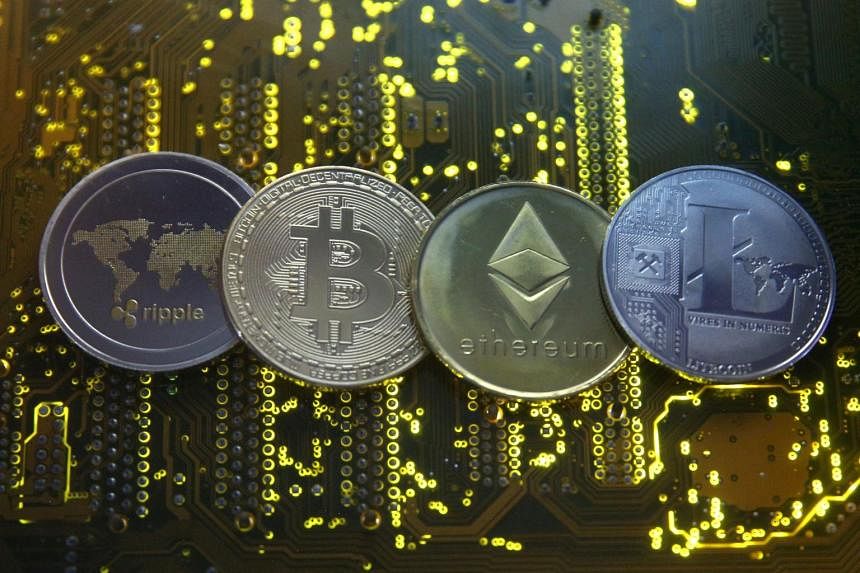Tech Talk
5 things to watch out for when dabbling in cryptocurrency investments

SINGAPORE - Cryptocurrency investments have received a lot of negative attention in recent times.
It started in May with the turmoil caused by the sudden collapse of a major US dollar-pegged stablecoin, the TerraUSD which is linked to another cryptocurrency Luna. This was followed by fluctuations in the value of Bitcoin, which touched US$19,000 recently, a far cry from its peak value of US$68,000 in November 2021.
Amid talk of a crypto winter, cryptocurrency exchanges from Bybit to Crypto.com have announced significant workforce reductions of up to 20 per cent.
Despite the negative press and restrictions imposed by the Monetary Authority of Singapore (MAS) on selling to retail investors, Singapore cryptocurrency investors remained active, ranking among the top 20 countries for crypto exchange visitor traffic, according to SimilarWeb.
Last month, the MAS signalled that it would further tighten restrictions through measures such as customer suitability tests. The authority also reiterated that cryptocurrencies are unsuitable for use as money and are "highly hazardous" for retail investors.
What can investors watch out for when dabbling in cryptocurrency investments?
1. Assess your risk appetite
Talk to a reputable financial adviser and assess your risk appetite. Be familiar with the product that you want to invest in and what protections, if any, you may have.
Note that only a few cryptocurrency platforms are licensed by the MAS under the Payment Services Act 2019. They include Australia-based Independent Reserve. Even then, investors have the flexibility of buying cryptocurrency from offshore platforms not licensed by MAS. There are risks in using unlicensed platforms as they would not have undergone the strict licensing process meant to safeguard local investors.
2. Choose the right crypto-wallet
Investors need to create a crypto-wallet to store cryptocurrency and trade on platforms. Users can even spend cryptocurrency in the physical world, including with Singapore dinnerware seller &glazed and pet food supplier Kibbles.
Some investors keep their cryptocurrencies in a crypto-wallet within their trading platform, while others store them outside the platform in what is known as "hot wallets" or "cold wallets".
Hot wallets are always connected to the Internet, and can be accessed via a mobile phone, tablet or computer. They are easily accessible and convenient to use, but they are also vulnerable to cyber-security threats being always connected. Popular wallets include MetaMask and Electrum.
Cold wallets, on the other hand, are not connected to the Internet. Typically, they take the form of offline external devices such as a smart card or a USB drive. But you need to keep the security keycode associated with the device safe. If you lose the keycode or the device, or if the device malfunctions, you may lose your cryptocurrencies.
3. Be mindful of crypto-bridge risks
There are more than 12,000 cryptocurrencies in existence, but many operate within their own blockchain environment.
Crypto bridges, third-party connecting software, make different blockchains interoperable, allowing users with bitcoins to buy different cryptocurrencies or non-fungible tokens (NFTs) on another blockchain.
An NFT is a collectible digital asset that acts as a unique digital certificate of authenticity and ownership of a physical or virtual item.
But these third-party software might not have been securely developed. In June, hackers looted about US$100 million (S$14.7 million) from crypto bridge Horizon, in what is the third major bridge hack this year. In late March, Ronin Bridge lost about US$620 million to hackers. In February, hackers stole more than US$300 million from the Wormhole bridge.
The bottom line is: Even if a blockchain platform is secure, vulnerabilities in crypto bridges could result in money lost.
For this reason, more crypto exchange platforms are starting to develop and offer in-house bridging services.
Regulators have stepped in. The MAS, for one, is now requiring digital asset players to adopt the same cyber hygiene standards and technology risk management principles as traditional financial institutions. The MAS is also reviewing imposing more requirements to protect users.
In the meantime, users should disconnect from crypto bridges unless transacting. Compensation is not guaranteed for crypto bridge losses.
4. Watch out for gas fees
These are transaction fees for the computational effort required to execute and record transactions. Transactions on the Ethereum blockchain have encountered astronomical spikes in gas fees during periods of high transaction volume.
For instance, a recent sale of virtual land Otherdeed NFTs worth US$320 million by Yuga Labs on the Ethereum blockchain incurred over US$120 million in gas fees. It is thus important to check gas fees and set fee caps to avoid overspending on cryptocurrency transactions.
5. Don't be fooled by stablecoins
Stablecoins, which are pegged to fiat currencies like the US dollar, may not necessarily be stable when the going gets rough. Just like fiat currencies and stocks, significant world events or an economic downturn could affect the value of cryptocurrencies. Stablecoins are only as stable as the amount and type of assets that back them.
What's more, the quality of the reserve asset of stablecoins lacks international standardisation, necessary to retain markets' confidence in the ability of stablecoins to maintain their value.
The MAS is considering imposing requirements like secure reserve backing and timely redemption at par to instil confidence in stablecoins.
Savvy investors should watch this growing space and not be overly fixated on risky cryptocurrency speculation.
- Irene Ng is a technology lawyer based in Toronto, Canada.
- Goh Eng Han is a legal executive at Resource Law LLC.
Join ST's Telegram channel and get the latest breaking news delivered to you.








No comments:
Post a Comment